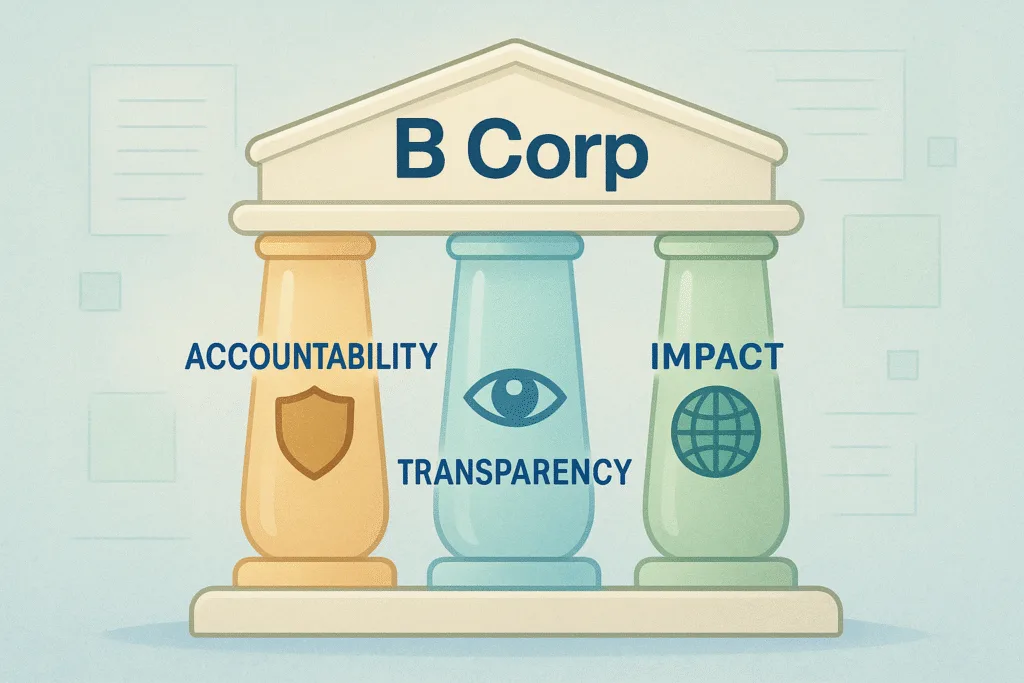
Legal requirements for B Corp Certification are rules that companies must follow to remain certified as a B Corporation. These requirements ensure that businesses uphold high standards of accountability and transparency, and that they consider the impact of their decisions on everyone affected by their operations—not just shareholders.
Meeting these legal requirements is critical because it holds certified companies accountable for the promises they make around social and environmental responsibility. It also protects the integrity of the B Corp Certification, making sure companies can’t just use the label for marketing but are genuinely operating with purpose and accountability.
In this guide, you will learn what legal commitments B Corps must make, why accountability and transparency matter, and the steps your business needs to take to maintain compliance. We’ll also cover what ongoing reporting and governance changes are required, and point you directly to the most useful resources.

Legal Requirements and Accountability for B Corps
Certified B Corporations must make real, enforceable changes to the way they do business. For example, instead of just aiming to maximize profits, a certified B Corp is required by law to consider how its decisions affect workers, customers, the community, and the environment. To illustrate, a food company certified as a B Corp cannot ignore how its sourcing practices affect local farmers or ecosystems. It must report on these impacts and make its findings public. This ensures that stakeholders—from customers to communities—can see whether the business is living up to its commitments.
These requirements are not just paperwork. B Corps must change their legal governing documents to state that directors and officers have a duty to consider the impact of company decisions on all stakeholders. This shift from a shareholder-only focus is what separates B Corps from traditional corporations. In addition, B Corps are required to publish an annual or biennial benefit report, providing transparency into their social and environmental performance. The recertification process, which happens every three years, acts as a safeguard to keep standards high and ensure companies continue to improve over time.
- Stakeholder Governance: Companies must update their legal framework so that leaders are required to balance profit with the interests of all stakeholders, not just shareholders. This legal change is foundational to B Corp Certification and helps protect a company’s mission through leadership changes, investment rounds, or even sale.
- Transparency: B Corps are required to make their social and environmental performance public. This usually takes the form of a detailed, publicly accessible report that allows customers and partners to evaluate how the company is performing against its goals.
- Ongoing Compliance: Certification is not a one-time event. Companies must recertify every three years by completing the B Impact Assessment again and demonstrating continued improvement. If a company fails to meet the standards, it can lose its certification.
- Reporting and Documentation: In addition to the legal document changes, companies must maintain thorough records of their social and environmental initiatives and be prepared for verification by B Lab. This ongoing record-keeping ensures the business remains accountable between certification periods.
Start Your B Corp Journey with Legal Accountability
Understanding and meeting the legal requirements for B Corp Certification is essential for any business committed to lasting positive impact. The next steps are to review your current legal documents, identify what changes are needed for compliance, and prepare to implement stakeholder governance in your organization. Use the B Impact Assessment Tool and the official legal requirement guide to get started: